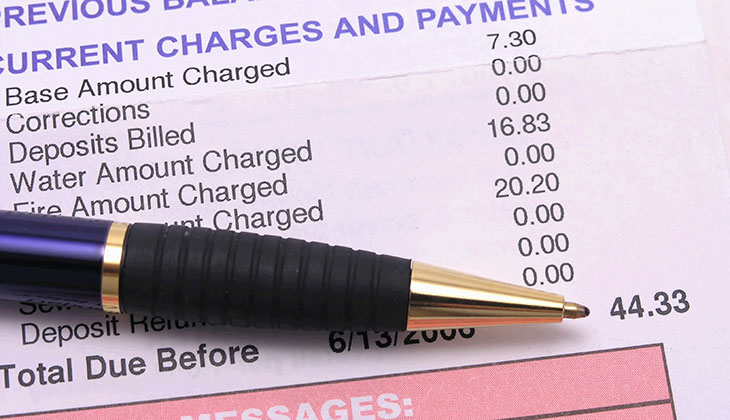Bill splitting services help HMO landlords
Chris Hogan, 15th January 2016, Landlords
Taking a look at the options for managing utilities in HMO properties.

Let's start with managing the utilities yourself. With many HMO's this will mean water rates, council tax, electricity and sometimes gas. It increasingly means broadband as well, particularly for student properties.
To do it all yourself you need to set up payment arrangements for those four (or five, if you have gas) services, then divide the whole amount between the rooms and add that on to the rent or make a separate charge for it. The law doesn't allow you to charge more than you are paying but that's very hard to manage and prove in these days of bundles and fluctuating rents
Risk
It also leaves you open to the risk that someone in the house uses far more of one utility or another. You'll have to pay the difference between what you've collected and what you've charged your tenants and then try and claw it back from the tenants.
This can be done by having an 'acceptable use' policy in the tenancy agreement, but having that in place and actually getting the cash out of some tenants might prove difficult! It's best to make the overcharges shareable between all the tenants, then peer pressure will hopefully reign in anyone who's taking advantage.
Restrictions
Some HMO landlords reduce this risk by placing restrictions on the utilities. Boilers, thermostats and programmers can be locked away in cupboards although there's a less draconian option for the thermostat. There are models that need a pin number to change the temperature and timings but have a 'boost' button that allows a temporary increase for an hour when it's really cold.
If you have many properties you might consider the investment in a wireless programmable controller worthwhile. They are expensive to install but you can control all of your properties from wherever you are with a computer or even a tablet or phone. There are even systems that allow you to control the temperature in each room, meaning you can save money by not heating empty rooms.
It also makes sense to have an unmetered water account (if possible) and an unlimited broadband package - it's just easier to administer.
Bill sharing services
There is an alternative to managing it all yourself and that's to use a billing service - a middle-man service that arranges the utilities then takes on the job of splitting the amounts between the tenants.
Here are a few that we've come across recently (although it must be stressed that we haven't analysed or reviewed them in any way so featuring them here doesn't not form any sort of recommendation):
Most of these services were started up by canny students who realised the problems of shared houses and bill paying. No one wants to be the person with their name on the bills as they realise they'll be left holding the baby if other residents don't pay up. They are aimed at tenants rather than landlords but there's no reason why landlords can't use them.
Often tenants are signed up by letting agents managing their properties, who are presumably on commission. If, as a landlord, a service is suggested to you by an agent it would be wise to ask if they're on commission or not.
Shifting the management
The bill splitting company then takes on the responsibility for managing the bills and accounts but not the liability, it's important to note. If tenants default they'll quickly find themselves being chased up by the bill splitting company. But in some cases the liability shifts to the landlord - it's important to understand the way the contract works and who's liable for what, in which situation.
The bill splitting companies don't charge tenants but do put a markup on the services they offer. The theory is that they can then use their bulk buying power to negotiate rates much cheaper than those that tenants or landlords could get from utility companies, so rates offered to tenants are still attractive. The bill splitting companies are also attractive to utilities because there's one huge bill instead of hundreds and thousands from individual households or tenants.
Which would work for you?
If you do have an HMO, or more than one, then you'll probably already know what a headache bills can be. But there are ways of dealing with the problem, whether you control it yourself or hand the responsibility over to a third party. If you do decide to give the bill splitting companies a go, do your research to make sure you understand exactly how it's going to work before switching.